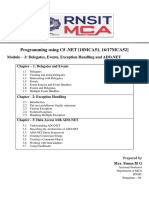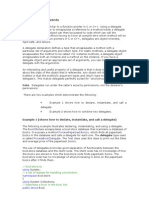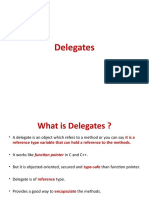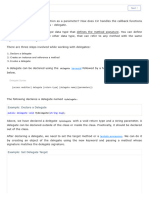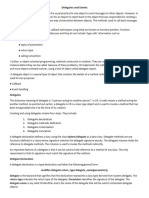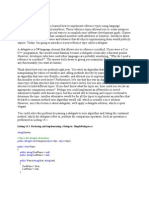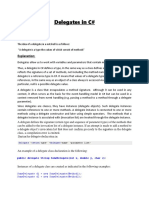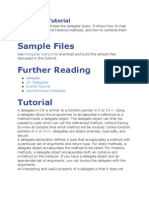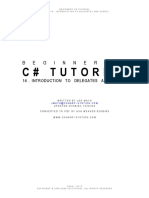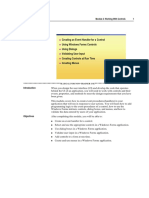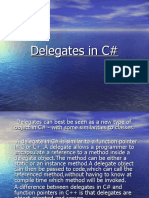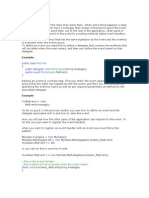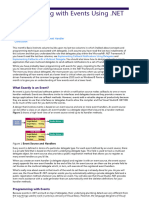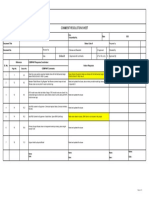0% found this document useful (0 votes)
24 views9 pagesLect05 - Events
This document discusses delegates and events in C#. It explains that delegates allow methods to be indirectly invoked by holding references to them. Events use delegates to allow classes to notify other classes of events, like a button click. The standard event handler in C# is EventHandler, which takes an object source and EventArgs as parameters to pass event information. An example demonstrates creating a Car class with Exploded and AboutToExplode events that are handled using delegates and the standard EventHandler.
Uploaded by
2151150038Copyright
© © All Rights Reserved
We take content rights seriously. If you suspect this is your content, claim it here.
Available Formats
Download as DOC, PDF, TXT or read online on Scribd
0% found this document useful (0 votes)
24 views9 pagesLect05 - Events
This document discusses delegates and events in C#. It explains that delegates allow methods to be indirectly invoked by holding references to them. Events use delegates to allow classes to notify other classes of events, like a button click. The standard event handler in C# is EventHandler, which takes an object source and EventArgs as parameters to pass event information. An example demonstrates creating a Car class with Exploded and AboutToExplode events that are handled using delegates and the standard EventHandler.
Uploaded by
2151150038Copyright
© © All Rights Reserved
We take content rights seriously. If you suspect this is your content, claim it here.
Available Formats
Download as DOC, PDF, TXT or read online on Scribd
/ 9




